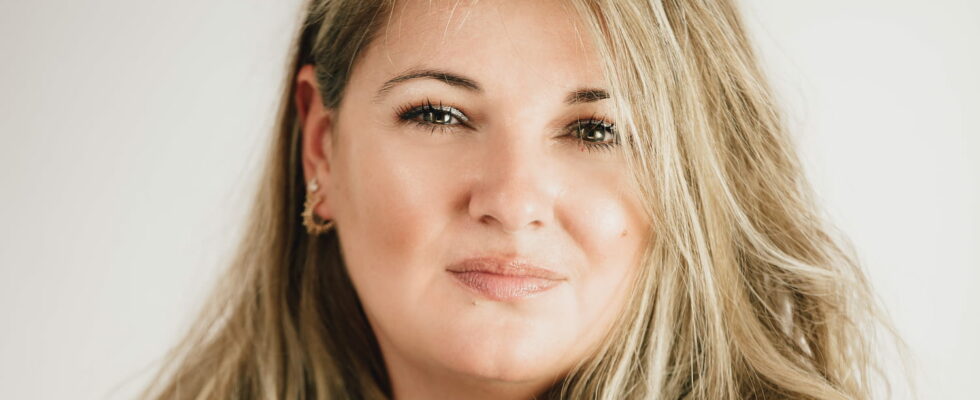For Laura, 30, her symptoms were linked to a seasonal virus, not a stroke.
“For a long time, I couldn’t talk about it without crying” remembers Laura, whose life was turned upside down when she had energy to spare and a new life that enchanted her. “I had just moved to Antibes, not far from my parents, and I was making frequent trips to Paris since I was HR manager in a company.” At the end of November 2019, signs of fatigue accumulated and the young woman, then aged 30, put them down to overwork: “I had just received some of my partner’s relatives while taking care of myself, I had my team’s evaluations to do, and it was Christmas, a time when I surpass myself in decorating the house.” For Laura, the persistent headache, slight fever and sore throat remind her of a fall virus.
His solution? Gentle doctors. “I didn’t like traditional medicine, my parents had to insist that I consult a doctor after vomiting.” Diagnosis: sinusitis and gastro. Around mid-December, Laura was getting worse and worse and began to sleep. “like a beast” although it is not in his habits. “If I speak today, it is to tell everyone to be attentive to their body, even young people, and to help everyone recognize the different symptoms that precede. 10% of affected patients have less aged 45, stroke is more fatal for women than breast cancer and there are much fewer information campaigns” regrets the one who is now campaigning on the ground alongside the Résilience AVC association. His only anxiety at the time: not being able to complete his assessments on time, with this terrible headache. But on December 19, his body gave out in the middle of the night.
Doctors’ night
When Laura gets up to go to the bathroom, her partner wakes up and realizes that she is not coming back to bed. He gets up and finds her unconscious in the toilet where she vomited and gets a sputter “everything is fine.” This is not the opinion of the young man who calls SOS doctors: “The doctor gave me an injection against vomiting” remembers Laura and he assured “Tomorrow, everything will be back to normal. When my boyfriend pointed out that my face was distorted, that wasn’t his opinion. If we had listened to him, I would have died.” Laura’s companion decides to call the SAMU despite the doctor’s advice. On the phone, we hesitate to send a team there: “For them, if I had already seen SOS doctors, there was no point in coming”explains Laura. When the SAMU team arrives at the young woman’s home and hears the story of the symptoms of the previous days, the concern grows especially as Laura is like a rag doll, at the end of her strength. “They sensed what was going on by taking me directly to the emergency room in Nice.” There, the scan reveals a stroke so massive that they wonder if they are not facing a tumor.
The vital prognosis is engaged
The vital prognosis is in jeopardy, the predictable after-effects worrying. The family was urgently called to his bedside. “Strangely, when I woke up, I had no awareness of the seriousness of my condition. I was stunned to see everyone around me, I found it a bit ridiculous and my only obsession was getting back evaluations of my teams It was when I wanted to jump on my phone that I realized that I was paralyzed on my entire left side. says Laura. Then, she can only measure the extent of her handicap and must remain hospitalized to recover little by little: “I had atrophied muscles, immense fatigue, an inability to concentrate and no idea of my balance. When the neurologist told me: “You have to take care of yourself. No more trains, no more planes, no car for more than two hours and a blood test every day.” Even orgasm was risky! I asked how long. He replied, “We don’t know “For me, it wasn’t a life. For him, I was a miracle!”
Laura takes a year before regaining all her faculties and mobility, even if fatigue persists: “My recovery would have been easier if my partner had been supportive, but he kept emphasizing how depressing my condition was to him.” The man who had shared her life for four years, whom she wanted to marry and with whom she wanted a child, appears more and more absent and distant: “A few months later, I went to live with my parents, who surrounded me with love. I was in mourning for my life, I cried a lot, I could not, moreover, face adversity under my roof.”
The breakup follows, roughly concomitant with good news during the assessment, a year later: Laura has no after-effects. “The brain had healed, it remained for the heart and soul to follow, but I took my destiny in my hands.” Laura wrote a book to document her experience, set up her public relations structure and recently coached managers.
“The job saved me, making the brochure, working on the logo, proved to me that my brain was still working. I was always convinced that there was a future!” Laura donates the profits from her book to the association Stroke Resilience. Proof that she is resilient herself, she has developed a generally positive image of doctors, despite the error of assessment of SOS doctors which could have been fatal to her. “Being still here has filled me with immense gratitude. And given me unusual strength to help others meet their challenges.”
Thanks to Laura Deweerdt, author of the book “My so pretty misfortune” (LRDH consulting)
